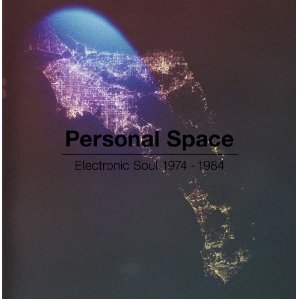The songs on this fantastic DIY soul compilation from The Numero Group have been billed as bedroom recordings, aligned to fit with the vogue of recent years. Yet it’s clear that this is DIY due to economic circumstance, not an arch aesthetic quirk. It is probably the case that all of these artists would have taken the best studio equipment money could buy if it had been offered to them. Luckily for us (if not for them) it wasn’t. For here, as with so much music, it’s the technical limitations that make it.
With a name like Spontaneous Overthrow, the proto-rap group behind sombre 1984 capitalist realist anthem ‘All About Money’ should have been huge. The song is pitched somewhere between The Last Poets and A Tribe Called Quest, if both had given up hope and become resigned to the logic of free market economics: "Looks like I’ve got to have three jobs… Can’t do nothin’… Bills, bills everywhere…" The cries ring out over hypnotic whirls of Farfisa organ and a bass line that sounds as hopeless and as trapped as the protagonist does.
Drum machines hiss and fractured bass lines squelch throughout. The whole thing is characterised by a kind of Xeroxed voluptuousness, the smoothness of soul and disco put through a lo-fi filter. Some of the artists here have already been championed by the most blogged-about stars of today. Jeff Phelps, for example, might be familiar to some for his appearances on Nite Jewel mixes. His slight, almost incidental ‘Excerpts From Autumn’ opens the record, but it is the 1985 track ‘Super Lady’ that is one of its highlights. A precursor to the best of chillwave, it is an understated classic that is so comfortable in its own sultry skin.
Personal Space deserves to become a series in the Nuggets or a Pebbles mould – there’s even a song that repeats the refrain "I’m a man", an obligatory inclusion on many a garage rock bootleg. Key & Cleary’s ‘A Man’ isn’t a straight cover of Bo Diddley’s ‘I’m a Man’. But it does owe a little to its spirit, albeit shifting the discourse from primal and sexual to the politics of race in post-Civil Rights America: "My muscles of steel / My mind of complex computers / My skin is black but still my blood is red / My lips are white but still my heart is pure / Nothing more / Nothing less / Just a man."
As ever with compilations of almost-lost treasures such as this, it is the certain out of time quality that is its greatest attribute – ‘Master Ship’ by Starship Commander Woo Woo feels the influence of European synth waves of Kraftwerk et al, but is seemingly twinned with the optimism of the baseball game organ, making it sound neither futurist nor nostalgic. Penultimate track ‘My Bleeding Wound’ by The New Year (1974) is melancholic yet valedictorian, a triumph of echo that broadcasts a lonely, futile search for "ecstasy, ecstasy, ecstasy," as the singer has it. The largely anonymous creators of these songs may have been outsiders by proxy, if not by wish. What rings loudest now is not each artist’s power as a singular entity, but their subsequent collective power as an invisible republic exposed.


